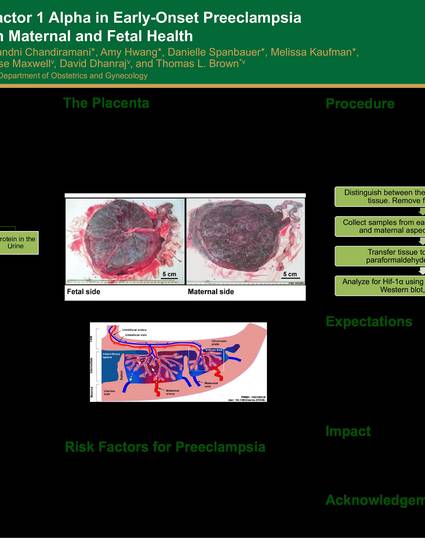
Article
Placental Hypoxia-Inducible Factor 1 Alpha in Early-Onset Preeclampsia as a Predictor of Future Risk in Maternal and Fetal Health
Medical Student Research Symposium Abstracts and Posters
Start Date
29-4-2021 7:05 PM
End Date
29-4-2021 7:15 PM
Disciplines
Document Type
Poster
Description
Preeclampsia is a life-threatening, pregnancy-associated disorder characterized by the rapid development of hypertension with renal dysfunction. While preeclampsia generally occurs later in pregnancy, early-onset preeclampsia (EOPE) can occur much earlier and is usually more devastating. Early-onset preeclampsia is also associated with an increased risk of maternal cardiovascular and metabolic disease in mothers later in life and neurocognitive dysfunction in their offspring. EOPE is strongly associated with abnormal placental development and fetal growth restriction during pregnancy.
Citation Information
Julie Slyby, Bryce Linkous, Sarah Scott, Chandni Chandiramani, et al.. "Placental Hypoxia-Inducible Factor 1 Alpha in Early-Onset Preeclampsia as a Predictor of Future Risk in Maternal and Fetal Health" (2021) Available at: http://works.bepress.com/thomas_brown/66/
